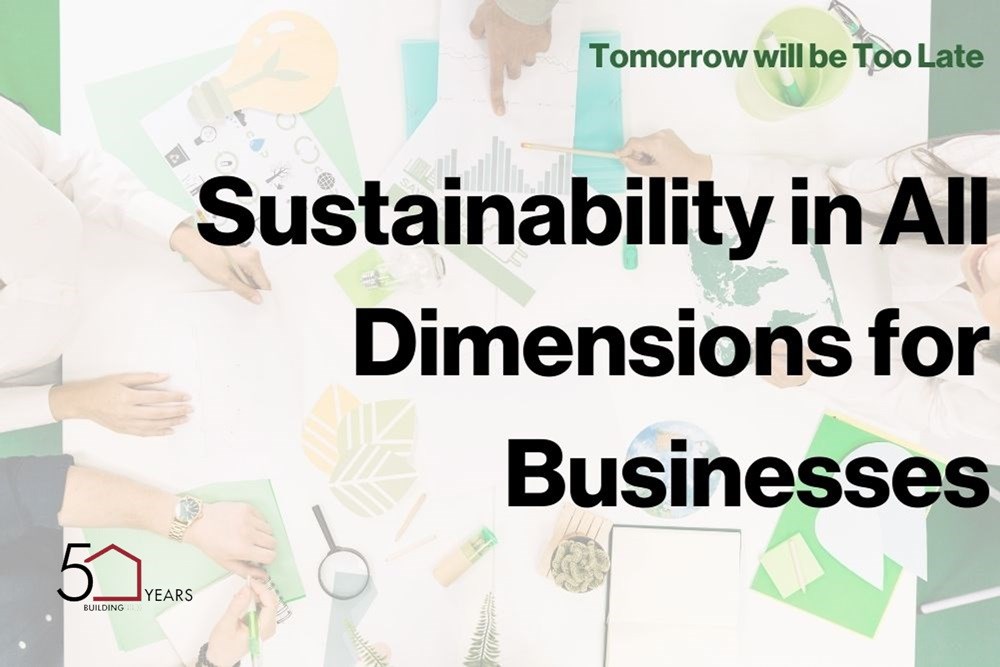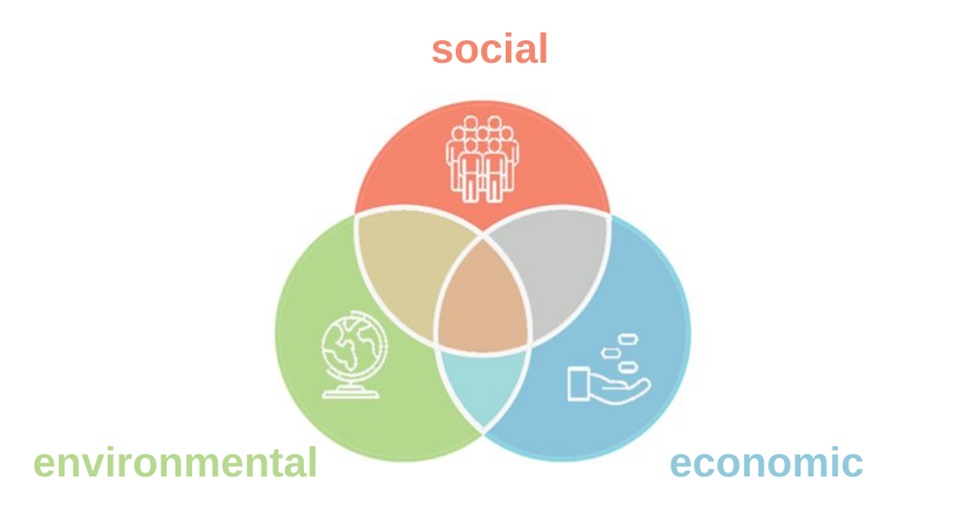
Tomorrow will be Too Late | Sustainability in All Dimensions for Businesses
About Sustainability
The concept of sustainability is defined as the ability to provide a self-renewing natural environment, social conditions based on equality and well-being, and an economic system and to make this system permanent. Based on this definition, sustainability can be discussed in three fundamental dimensions: "environmental, economic, and social."

The environmental dimension covers issues such as the sustainable use of existing natural resources, reducing environmental pollution, preserving ecosystems, and conserving biodiversity. This dimension emphasizes the importance of protecting the natural environment, acknowledging the limited resources of our planet. Topics under this dimension include climate change, energy efficiency, water resource management, and waste management.
The economic dimension encompasses issues such as economic growth, job creation, fair distribution of resources, and sustainable production and consumption patterns. It aims for long-term economic prosperity and development by considering the environmental and social impacts of economic activities. Topics under this dimension include sustainable business models, green economy, and social entrepreneurship.
The social dimension includes topics such as social justice, equality, human rights, health, education, and gender equality. It aims to improve the quality of life for individuals and promote equal opportunities for everyone. Topics under this dimension include improving social welfare, reducing inequalities, protecting disadvantaged groups, and encouraging participation.
By addressing these three dimensions in a balanced manner, the goal of sustainability is to leave a much more livable world for future generations.
Sustainability for Businesses
As economic actors, businesses should aim to benefit sustainability by considering the "environmental, economic, and social dimensions," regardless of their size. But how?
-
Environmental Dimension
Minimizing the harm businesses inflict on the environment and efficiently using natural resources are fundamental goals of the environmental dimension. Issues such as energy efficiency, waste management in the production process, and reducing carbon emissions are crucial in this dimension.
Businesses contributing to sustainability in the environmental dimension could focus on transitioning to renewable energy sources for their energy needs, adopting recycling practices within the organization, and reducing carbon emissions.
-
Social Dimension
The social dimension of sustainability for businesses involves their interactions with society and their social responsibilities. Companies should prioritize the health, safety, and well-being of employees by providing a fair working environment. Additionally, supporting social projects and promoting the education and employment of local communities are essential for the social dimension of sustainability.
-
Economic Dimension
For businesses, integrating sustainability strategies into their business models and making sustainable investments cover the economic dimension. Economic sustainability enhances long-term growth potential for businesses while positively impacting society and the environment.
.jpg)
An Example of Sustainability for Businesses: KYK Building Chemicals
KYK Building Chemicals is an exemplary company in the construction sector that implements sustainability issues, which will likely become mandatory for businesses in the coming years. So, how does KYK Building Chemicals address the environmental, social, and economic dimensions, as discussed above?
Firstly, since 2009, KYK Building Chemicals has been assessing the environmental impacts of all its activities under ISO 14001 and taking actions to minimize these impacts. This includes efforts to reduce waste generated during production and proper waste separation.
To ensure the efficient use of energy resources, KYK Building Chemicals raises awareness among its employees, emphasizing both the environmental and social dimensions. They strive to institutionalize sustainability awareness within the organization.
Moreover, KYK Building Chemicals contributes to economic sustainability by making investments that reduce environmental risks. The company aims to increase its social projects in line with sustainable development goals.
For more detailed information about KYK Building Chemicals, please click here.
In conclusion, sustainability for businesses requires an approach that balances environmental, social, and economic factors. Whether it's reducing environmental impacts, fulfilling social responsibilities, or achieving economic success, businesses, regardless of their size or dimension, find long-term success important. Moreover, leaving a more livable world for future generations seems crucial.
_____________________

